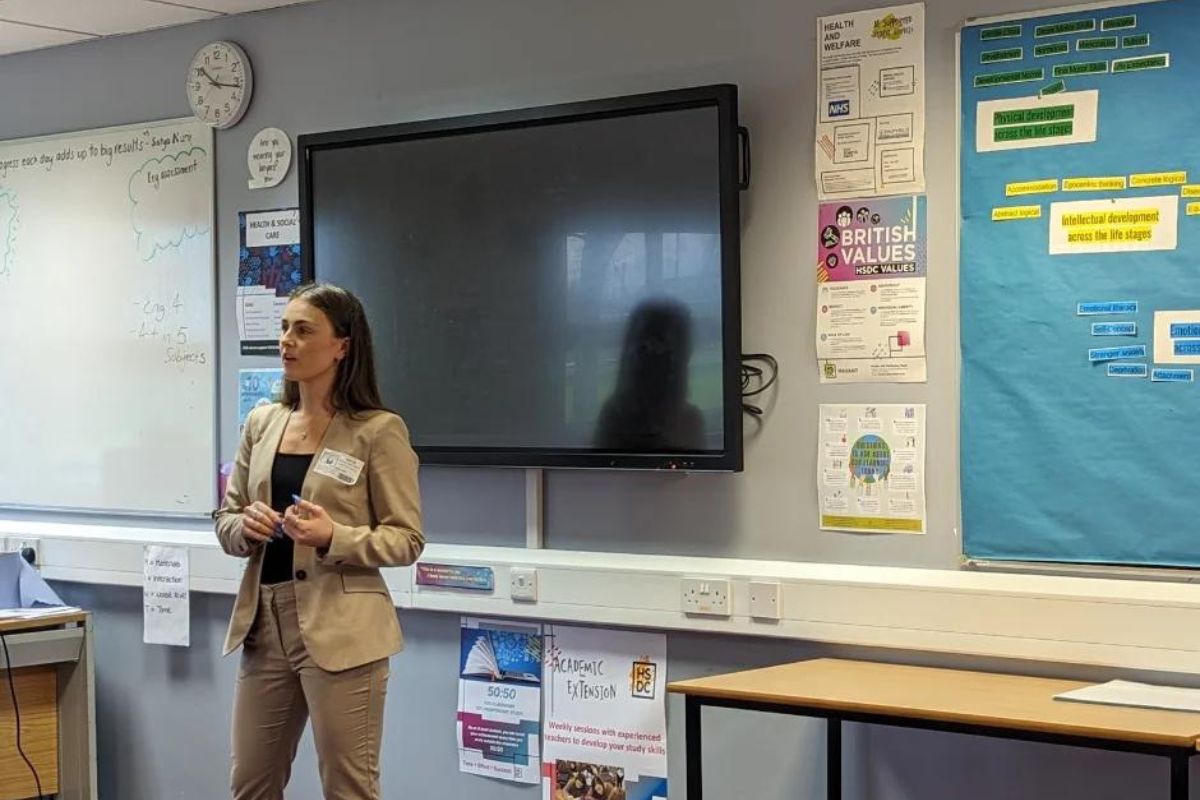Apprenticeship Outreach – Engaging with under-represented groups to improve social mobility

@SUTTONTRUST REPORT EXAMINES APPRENTICESHIP OUTREACH AND OFFERS EMPLOYERS TIPS ON HOW TO TARGET AND IMPROVE THEIR WORK
A new report from the Sutton Trust today (21 Dec) looks at how young people are accessing apprenticeships, as well as the outreach employers are undertaking to encourage more young people to take them up.
Previous research by the Sutton Trust has highlighted how few low income young people are accessing degree apprenticeships.
Today’s report “Apprenticeship Outreach – Engaging with under-represented groups to improve social mobility” aims to provide practical advice to employers to improve take-up of apprenticeships for disadvantaged young people.
New polling of 857 apprentices finds that many struggled to navigate the apprenticeship application process, highlighting the need for better outreach from employers, as well as support from schools for pupils interested in taking up an apprenticeship. A quarter of respondents said they found the apprenticeships application process difficult to navigate – and those from a working-class background were more likely to report this compared to those from middle class backgrounds.
Some respondents (14%) said they didn’t receive any information or outreach before starting their apprenticeship. When asked what information they would have liked to receive before starting their apprenticeship, the most popular response from young apprentices was information on salary, followed by information on career opportunities after their apprenticeship as well as on the balance between work and study.
When asked about what could have encouraged their friends, peers and-or classmates to choose an apprenticeship, almost one in three (31%) of the young apprenticeships surveyed said better information and support from their school.
Today’s report looks at the different types of outreach activities undertaken by employers through a series of interviews. Apprenticeship outreach is much less developed than outreach conducted by universities, and is done in a variety of ways across employers, with little evidence as yet on effectiveness.
The research finds that spending on apprenticeships outreach appears to be very low and there is still a disconnect between the employer experience and the school experience of working together to enhance young people’s knowledge and awareness of apprenticeships.
To support more effective outreach, today’s report includes tips for employers on how best to encourage more young people, particularly those from lower income backgrounds, to take up apprenticeships.
They include:
- Clearly highlighting and offering work placements to students as a first step to engagement.
- Providing information on salary and career opportunities, as well as on the grade requirements to access apprenticeships and information on the application process.
- Tracking and monitoring the socio-economic make up of the workforce so employers know who to target outreach towards.
- Partnering with organisations with good links to schools and colleges to improve the impact of outreach.
- Start outreach early so students are fully aware of which subjects are relevant to specific sectors and what grades they need to access apprenticeships.

Sir Peter Lampl, founder and chair of the Sutton Trust and chair of the Education Endowment Foundation, said:
“Degree-level apprenticeships have the potential to be powerful vehicles for social mobility. Yet we know from previous research that there are simply not enough of them and disadvantaged young people taking them up.
“Effective outreach from employers – combined with high-quality careers advice and support from schools – is central to changing this. Young people need better information about the career opportunities that different types of apprenticeships can lead to, as well as the grades they need to access them.
“Our new report offers employers tips for encouraging more young people to take-up apprenticeships. Developed through a series of in-depth interviews with apprenticeship providers, our hope is that they encourage more employers to ramp up their outreach efforts and target them at young people from lower-income backgrounds.”












Responses